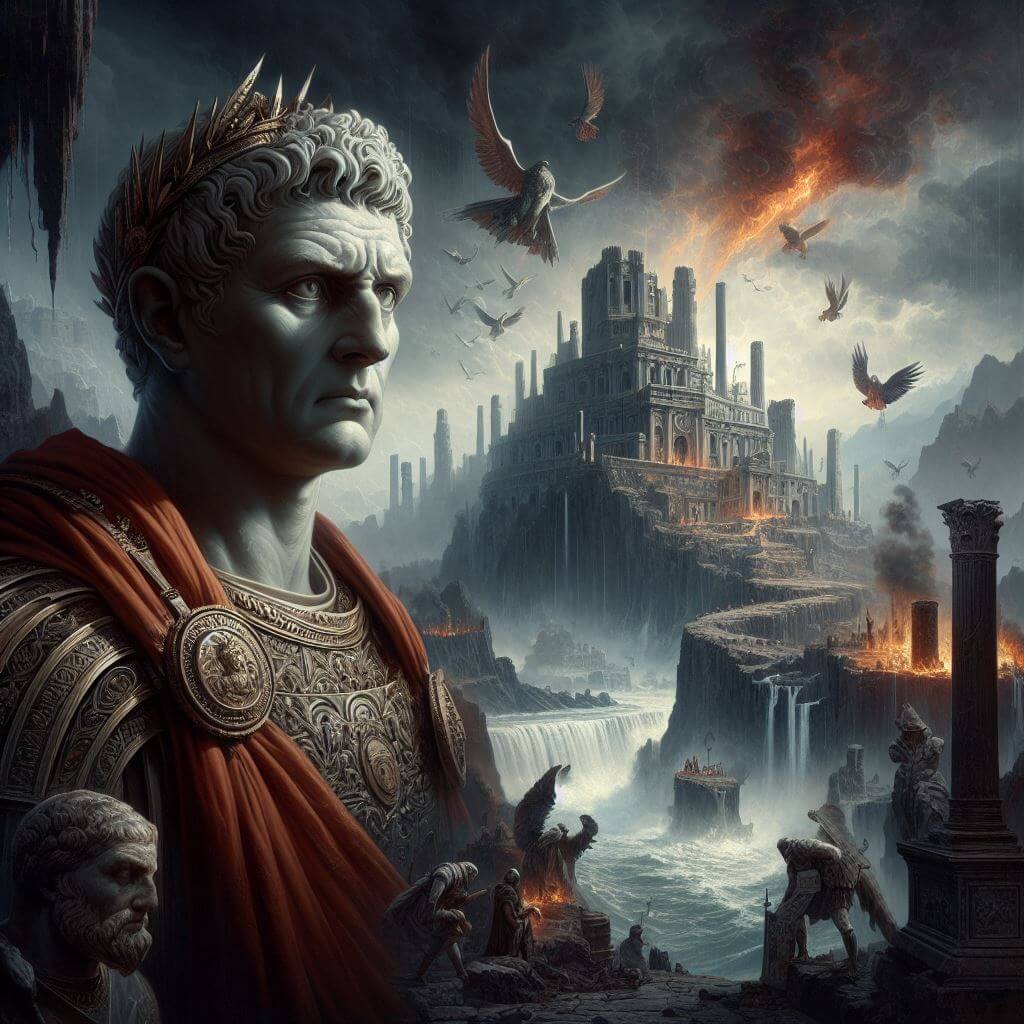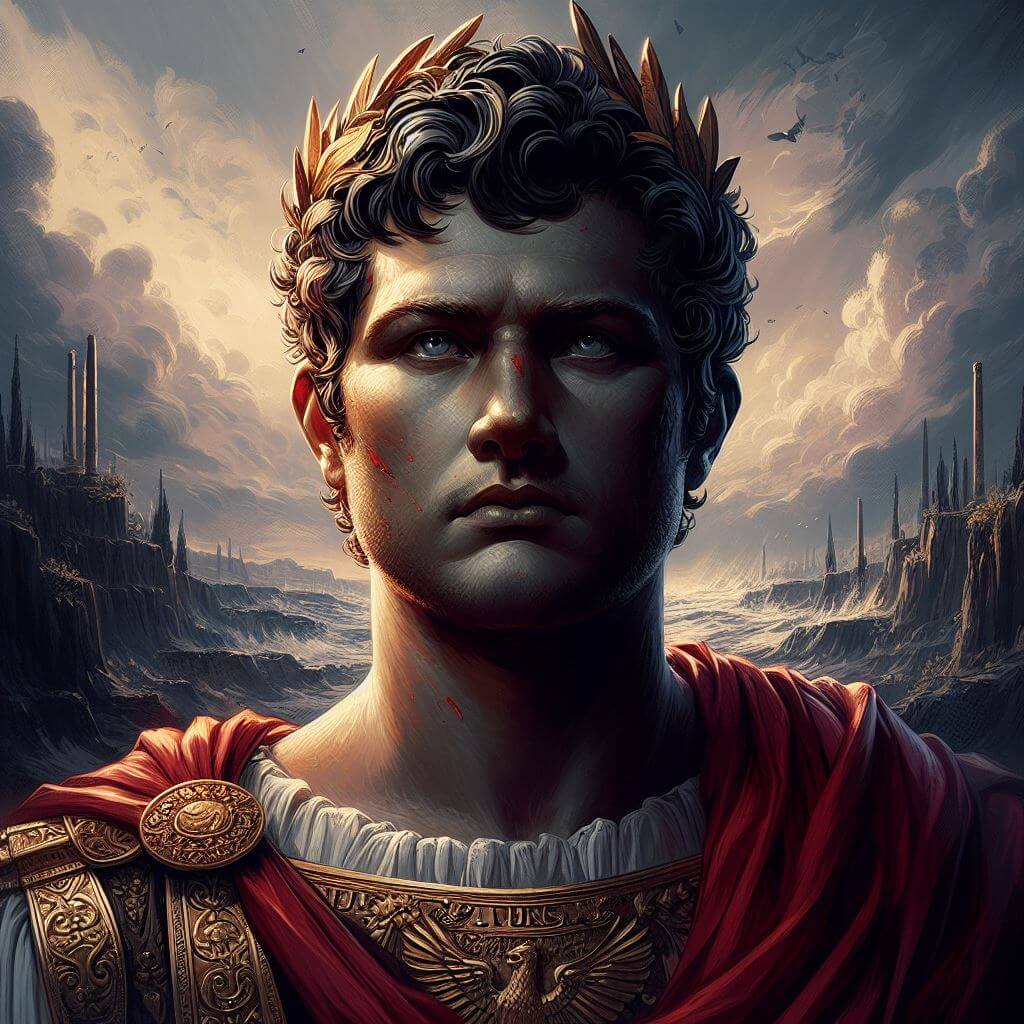Explore the life and turbulent reign of Nero, born Lucius Domitius Ahenobarbus, the last ruler of the Julio-Claudian dynasty in ancient Rome. Delve into his early life, rise to power, artistic pursuits, and the controversies surrounding events like the Great Fire of Rome and the persecution of Christians. Discover the dramatic end to Nero’s rule and his ultimate fate as he faced rebellion and betrayal in 68 A.D.

Nero; (37-68 A.D.), Roman emperor. Lucius Domitius Ahenobarbus (his name before he became emperor as Nero Claudius Caesar) was born in Antium, Italy, on Dec. 15, 37. He was to be the last of the Julio-Claudian emperors. His father, Gnaeus Domitius Ahenobarbus, was the grandnephew of Augustus, the first Boman emperor; and his mother, Julia Agrippina (known as Agrippina Minor) was the great-granddaughter of Augustus. When his father died, his mother married her uncle, Emperor Claudius I, in 49. She persuaded Claudius to adopt Nero in 50 and then to make him his son-in-law by marriage with his daughter Octavia. Claudius died in 54, perhaps poisoned by his wife, who then secured the imperial throne for Nero, despite the claim of Claudius’ son Britannicus. In 55, Britannicus was murdered on Nero’s orders.
The first five years of Nero’s principate later were pronounced golden ( aureum quinquennium ) because, under his able advisers, the praetorian prefect Sextus Afranius Burrus and the Stoic philosopher Lucius Annaeus Seneca, affairs of state were conducted with skill. During this time Nero pursued a life of pleasure, for the most part leaving governmental affairs to Burrus and Seneca. He prided himself on his talents as poet, musician, actor, and athlete.

Enraged by his mother’s interference with his private and public life, Nero had her put to death in 59. The year 62 saw Burrus’ death from natural causes; the enforced retirement of Seneca, who was doomed to death in 65; Nero’s divorce of Octavia, who was murdered in 62; and his marriage to his mistress, Poppaea Sabina.
In 64 a nine-day fire consumed wholly or in part 10 of the 14 regions of Bome. This gave Nero, who was commonly thought to have started it, the chance both to rebuild Bome on a more magnificent scale and to persecute the Christians as alleged arsonists.
A conspiracy to make Gaius Calpurnius Piso emperor in 65 was discovered, and not only the conspirators, who included military men, but many innocent people were put to death.

In 67-68 the emperor toured Greece, where he won so many prizes for his poetry and music that in gratitude he proclaimed freedom for Greece. His apparent fondness for Greek culture was repugnant to the Bomans. While he was still in Greece, troubles began to break out throughout the empire, partly because of his extravagances, which had heavily taxed the Bomans and the colonies; partly because of his unacceptable behavior; and partly because of his mismanagement of the empire. Military leaders in Africa, Gaul, and Spain revolted. Nero quickly returned to Bome, only to find that the Praetorians had deserted him. He fled from the city and committed suicide on June 9, 68.